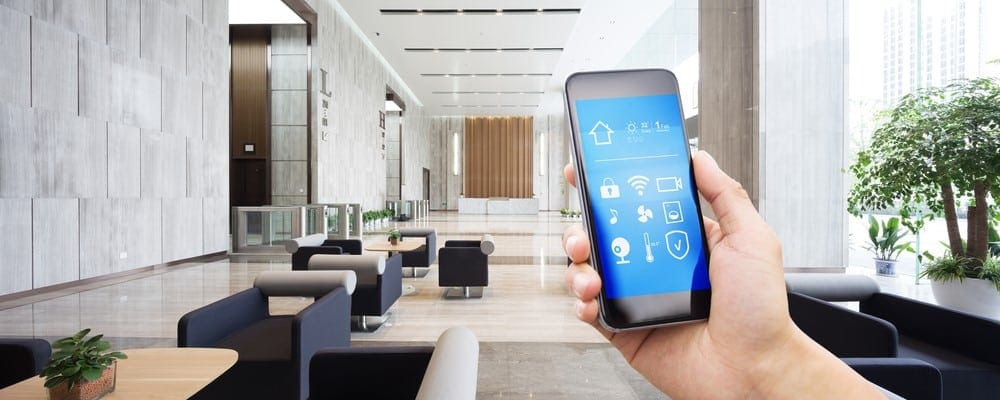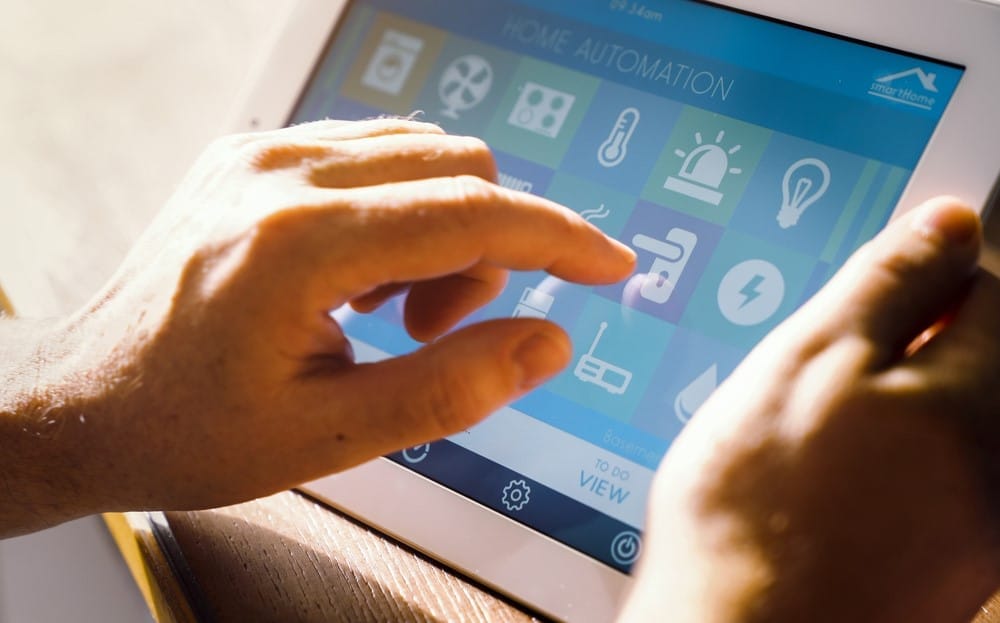Benefits of Smart Buildings – Why Building Smart Is Good for the People & Environment
You have probably heard of smart cities, smart houses, and smart buildings. These intelligent building solutions are quickly improving the way of life for urban communities and busy cities.
While smart cities are combining communities and smart houses are increasing comfort and quality of life for residents, smart building technology is paving the way to improved work efficiency, customer service, and productivity in various facilities.

What Are Smart Buildings?
A smart building is a new and innovative way to improve and simplify daily routines in commercial settings. These buildings generate detailed data reports and analyze themselves, ensuring it is running with maximum efficiency.
Using a smart building solution and keeping entire buildings connected through the same devices and grids, it is easier than ever to monitor how people and systems use buildings.
Some key features of smart building technology include:
- The Internet of Things (IoT)
- App-enabled building services
- Predictive analytics
- Intelligent building management system (IBMS)
- Smart sensors (people counters, lighting controls, air conditioner, and heater controls)
These features and many others combined to create a smoothly functioning, highly efficient, and intelligent building management structure. When compared to traditional buildings, this type of construction can decrease costs and increase production throughout the building.
The Six Benefits of Smart Buildings

There are many benefits to having a smart building system in place of a typical commercial building. While the development cost may be significantly higher, the savings over time is well worth the initial investment.
1. An Increase in Productivity
Smart building technology is set up to increase the productivity of the occupants living and working there. These components are geared towards creating a more comfortable and accessible space.
IoT, smart sensors, analytic software, and other features allow these buildings to adjust key systems independently to facilitate a more convenient, maintenance-free space.
2. Higher Efficiency
Intelligent buildings are a great way to increase company efficiency. These facilities are set up with special IoT sensors and other technologies that can track, manage, and generate useful data on how the building is being used.
With sensors, IoT, and other smart technology, you can quickly see where heat or air conditioner temperatures are preferred, what lighting settings are used, where, and more.
This type of data is a great way to ensure energy efficiency, saving both time and money.
3. Reliable and Timely Maintenance
With their software, apps, and sensors, a smart building is a great way to free up time for maintenance. This can be any type of maintenance to the building, from analyzing energy use to essential predictive upkeep.
Maintenance support systems can be programmed to do various jobs on a specific schedule and can be changed or monitored by the user. These maintenance systems receive a substantial ROI after installation, saving you money and workload.
4. Reduction in Energy Usage
You can easily operate the entire facility through one device when an entire building is set up on the same energy grid and internet system. This will lower the amount of energy you use each day and the associated costs.
A smart building can also control, maintain, and set parameters for various operating systems with IoT devices, which can also keep things more eco-friendly.
5. Added Convenience
The convenience of a smart building is unmatched. These intelligent facilities make it easy and convenient for anyone who enters, works, or simply visits there. All building functions can be easily accessed through a single device, making tablets or other smart devices your remote control for the whole environment.
With the help of IoT, smart buildings are set up on a single internet grid, combining all or most operations and providing quick access to things such as lights, temperature control, transportation information, and more.
6. Increase in Employment Opportunities
With all of the new and improved computer automated systems, many believe jobs are limited or being taken over by technology and AI. While this may be true for some areas, it also opens up career opportunities in many more.
To keep data analysis, programming, and maintenance updated, there is a massive opening for career opportunities in this industry.
Along with extensive job openings and advancements in this field, smart buildings also provide the perfect work environment for those already on the clock. With total connectivity, co-workers can easily, efficiently, and quickly work together with seamless access to the same information.
Smart Building FAQs

What is the importance of real-time insight in a smart building?
Real-time insight provides a quick and easily accessible look into the system and functions of your building at any time. This helps to analyze how the building is running and lets you observe where any changes are necessary.
Are smart buildings affordable to design, develop, and maintain?
The cost to develop a smart building will be substantially higher than that of a typical or traditional design initially. However, once the building is up and running, the money you save and the increase in production and profits will surpass that of a traditional facility design.
Are smart buildings good for the environment?
One of the most significant benefits of developing a smart building is its positive environmental impact. Each smart building is run with energy-efficient designs, reducing the power consumption required to run, maintain, and even build onto every system.
What are some of the benefits of a smart building?
The benefits of developing a smart building are endless. However, some of the most notable positive aspects include increased efficiency, productivity, convenience, and career opportunities.
The Benefits of Smart Buildings Are Impressive
Now that you know the answer to “What are smart buildings?”, you can see benefits are abundant to developing and utilizing smart buildings. These facilities are ideal for saving energy consumption, increasing the productivity and profits of businesses, and making life easier and more convenient for everyone using it.
When you build smart, you are benefiting both yourself and the environment.



